The content of the article
Cystitis is an inflammation of the bladder mucosa that brings a lot of unpleasant symptoms. The course of the disease becomes more complicated if the child is a patient. Most often, cystitis is affected by two categories of children - babies of one to three years old and adolescents 12-13 years old. Young children often fall ill with cystitis, because they can play on the floor, they freeze, but in the heat of excitement they do not change their location, because the game is so exciting. Teenagers fall ill because they want to look fashionable and stylish, while wearing short jackets in the cold, girls flaunt their skirts in winter. All this leads to the development of cystitis. If it is not treated in time, the acute phase of the disease becomes chronic. Today we will talk about children's cystitis - how to recognize it, why it appears and how to deal with this disease.
How to recognize a cystitis in a child
One of the main symptoms of cystitis is painful urination. It is very good if the baby already knows how to express his feelings and can convey the nature of the pain to the parents. But what do moms infants? How to understand that a child is crying because of cystitis? The difficulty of diagnosis in this case lies in the fact that babies often suffer from abdominal cramps, their teeth are cutting through, and the child may catch a cold. Recognizing the symptoms of painful urination is quite difficult. If the child screams sharply and suddenly, try to undress him. If crying occurs during urination, it is most likely cystitis or other diseases associated with the kidneys and urinary system. In addition to painful urination, cystitis may be manifested by other symptoms.
The inflammatory process in the bladder gives rise to a temperature of 38-39 degrees, depending on the degree of development of the disease.
Urine in a sick child may become turbid, in some cases it gets dark.
Urination becomes frequent, more than 3-4 times per hour. This does not apply to infants - they have frequent emptying of the bladder is considered normal.
In some cases, the child may have lower abdomen.If the waist and back area is above the lower back, the inflammation has affected the kidneys, possibly pyelonephritis.
Sometimes urination becomes difficult - the child feels a urge, sits on the pot or toilet, but cannot empty the bladder. Or emptying is accompanied by severe pain.
In some cases, the child may experience urinary incontinence. Here it is necessary to take into account the fact whether the baby before the illness could independently ask for a pot.
The inflammation can be so severe that the pain can be spread not only to the urinary canal, but also to the genitals, the anus, etc.
In the later stages of the development of the disease, blood streaks may appear in the urine.
The general condition of the child deteriorates - there is a weakness, the baby is naughty, does not sleep well, his appetite is lost, the child often whimpers.
As soon as you replace these symptoms in your child, you need to show him to the doctor as soon as possible. The fact is that the symptoms are often similar to the common cold. General immunostimulating drugs, abundant drinking and anti-inflammatory drugs drown out the course of cystitis, but do not cure it completely, because the disease requires a more targeted effect.That is, the mother treats the child for a cold, the symptoms of cystitis subside, but the danger is that the cystitis turns from acute to chronic. Treating chronic cystitis is much more difficult. For the correct diagnosis, the doctor may send you for tests. As a rule, when cystitis is suspected, a general and biochemical analysis of urine is performed, and an ultrasound of the pelvic organs is performed. Bacteriological sowing will help you to accurately determine the type of pathogen and its sensitivity to various types of antibiotics, antifungal drugs, etc.
Girls suffer from cystitis much more often due to the fact that the female urethra is wider and shorter. Infection through such a channel spreads much easier than through a narrow and long male urethra. Nevertheless, cystitis can get sick and the boy - this also happens. Boys are more likely to have chronic cystitis, while girls suffer from an acute manifestation of the disease. In case of cystitis in a boy, it is necessary to clarify the diagnosis with the doctor, because pain during urination may indicate phimosis - when the impossibility of completely opening the head of the penis leads to congestive processes.In this case, the pain is brought by the remnants of urine salts, which are under the foreskin. Symptoms of diseases are similar, although they have a completely different nature. Therefore, only a doctor should deal with the situation.
Why does cystitis occur?
The causative agents of cystitis can be bacteria, fungi, viruses and other harmful microorganisms. Here are some reasons for the development of cystitis in a child.
Most often, exacerbation of cystitis occurs on the background of hypothermia. You can not swim in cold water, sit on the concrete, easy to dress in the cool season, play on the cold floor. All this leads to the beginning of the inflammatory process.
Fungi and bacteria can be activated against the background of reduced immunity with frequent illnesses of the child.
Unbalanced nutrition, untimely introduction of complementary foods, lack of natural fruits and vegetables in the diet can lead to the fact that the baby develops avitaminosis, which is also the cause of exacerbation of cystitis.
Failure to follow the rules of personal hygiene is another reason for the development of cystitis. Panties need to be changed every day, otherwise dirty laundry can be a provoking factor to the development of the inflammatory process.The same applies to diapers - they should be changed every 3-4 hours, otherwise they will become a breeding ground for infections.
Various chronic diseases of the genitourinary system often lead to cystitis. Often, kidney disease and cystitis occur simultaneously.
The causative agents of cystitis can get into the urethra through the anus and genital tract. Improper hygiene often leads to cystitis in girls. If the child wipes the ass after stooling from the anus in the direction of the vagina, a piece of feces can get into the urethra. In the urethra, inflammation begins, which quickly rises to the bladder.
Cystitis may occur against the background of an untimely emptying of the bladder. Children often play around, an interesting game does not allow to leave the toilet. If the baby is constantly suffering, it can also trigger the development of cystitis.
Cystitis can be acute or chronic. Acute cystitis develops very quickly, is rapidly, it has obvious symptoms, the acute form of the disease can be cured in 7-10 days completely. Chronic cystitis is a frequent inflammation of the bladder, which occurs less acutely, but constantly, at the slightest hypothermia. Chronic cystitis can be cured, but it takes a long time.Even if the treatment gave a result, and the symptoms subsided, you can not stop taking the drugs, otherwise the disease will become chronic again.
Drug treatment of childhood cystitis
Before prescribing medications, the doctor must identify the nature of the disease and the type of pathogen. If these are bacteria, antibiotics will be needed, if the fungi are antimycotic, antiviral medication will be needed if the virus is damaged. This is very important, because antibiotics will not help against the virus, but only increase the number of fungi. Here are the main directions of drug therapy that will help you suppress the development of cystitis.
- Antibiotics. In most cases, the causative agents of cystitis are bacteria, which is why antibiotics are often used to combat the disease. It is better to prescribe antibiotics only after bacteriological seeding, when the bacteria are most susceptible to a particular drug. Uncomplicated cystitis in children is usually treated with such agents as Pefloxacin, Ofloxacin, Norfloxacin, Levofloxacin, Amoxiclav, Monural.For the treatment of young children used suspension, older kids can swallow tablets and capsules. The antibiotic should be taken strictly at regular intervals. Together with antibacterial therapy, probiotics and prebiotics are required to maintain the intestinal microflora and avoid constipation and diarrhea.
- Antifungal drugs. They are prescribed for candidal cystitis. It occurs rarely, almost always in the absence of adequate hygiene. The most effective and common antifungal agents are Diflucan, Nystatin, Futsis, etc.
- Uroseptics. This is a group of drugs that cleanses the urinary system from various microorganisms. Among them can be distinguished Canephron - a strong herbal preparation that improves the functioning of the kidneys and urinary system. Canephron is safe enough even for pregnant women and young children.
- Diuretics. A sufficient amount of excreted fluid from the body reduces the concentration of microbes and bacteria in the bladder. Veroshpiron, Diacarb, Furosemide, etc. can be distinguished among such funds.
- Anti-inflammatory and painkillers. They are necessary for the acute course of the disease, when the baby cries a lot and runs to the toilet very often. You can give your child antispasmodics - BUT-silos or papaverine, to relieve muscle spasm of the bladder. Any anti-inflammatory agent based on Ibuprofen and Paracetamol will help get rid of the pain and reduce body temperature.
- Vitamins. They are necessary to improve the immunity of the child, to restore the damaged tissues of the bladder. For tissue regeneration, it is necessary to take vitamins PP, A, C and group B.
In some acute cases, physiotherapeutic procedures are prescribed as part of complex treatment. This antiseptic and antimicrobial treatment of the bladder, which is carried out through the canal of the urethra. Remember, only a doctor can prescribe drugs. Self-medication is effective only for relieving acute symptoms, it is very difficult to suppress the disease completely without drug therapy, and cystitis can become chronic.
How to relieve the symptoms of cystitis in a child
As you know, the disease is quite painful, the baby is naughty and crying.Here are some tips and advice that will help you alleviate the symptoms of the disease and speed up recovery.
- Rest First of all, the doctor prescribes bed rest for the child. It is necessary to exclude walks or walk only with a stroller. Give up on outdoor games, at least in the first 2-3 days of illness. It is quite difficult to do, because as soon as the condition of the child improves, he begins to jump on the bed and bed, it can not be laid. Try to find quiet games, read books, watch cartoons, build a designer, etc.
- Heat. Applying heat to the perineum will help relieve pain, reduce the number of urge to urinate. Type in a glass bottle of hot water, close tightly so that the child does not get burned, wrap a towel and tightly attach to the crotch. Doctors do not recommend applying heat to the lower abdomen, otherwise inflammation may rise to the kidneys. At high temperatures, warming compresses should not be done. Instead of a bottle, you can attach a bag of heated salt, a heating pad, etc. General warming of the body is very useful - if you can, go to the bath with a child older than three years old.
- Baths. This is another great way to reduce pain in the urethra. You can put the child completely in the bath or cook the healing composition in the pelvis and ask the baby to just sit in his booty. Water should be warm and comfortable, about 37-38 degrees. As a solution, you can use decoctions of herbs. Pharmacies have special fees that are intended for various diseases. In case of cystitis and other diseases of the urinogenital system, it is useful to brew decoctions from such plants as flax, thyme, clover, celery, yarrow, chamomile, juniper, etc. They quickly remove inflammation and relieve acute pain. You can do the bath 5-7 times a day, depending on the severity of the course of the disease.
- Drink plenty of water. Malicious microorganisms actively reproduce in the cavity of the mucous membrane of the bladder. To reduce their number, you can use frequent urination. That is, in fact, we simply wash out the bacteria from the affected organ. For this it is necessary to provide the child with abundant drinking regimen. It is necessary to give the kid to drink what he wants - compotes, fruit drinks, milk, diluted juices, water, sweet tea.Herbal decoctions such as chamomile are very useful. It perfectly removes inflammation and soothes the mucous membrane. You can drink broth hips - it is not just tasty and healthy, but also has a diuretic effect. It is effective to give the child alkaline mineral water - it has a slight anti-inflammatory effect. The main thing is that the baby should drink at least one and a half liters of water per day. Then recovery will come much faster.
- Diet. Salt and various spices penetrate with urine to the bladder, irritating the mucous membrane of its walls. Therefore, from the spicy and salty dishes while it is worth refusing to reduce pain. In addition, you need to provide your child with a balanced and varied diet that will help get rid of beriberi and improve immunity. Every day in the baby’s diet should be dairy products, vegetables, fruits, meat, cereals, greens. In the fight against cystitis, it is useful to eat dairy products - kefir, ryazhenka, yogurt.
- Hygiene. Since a huge number of bacteria are excreted with the baby’s urine, it is necessary to change the underwear and diapers more often, to wash every 6-7 hours and after each bowel movement.Teach the girl to properly use toilet paper - wipe the ass should be from the vagina in the direction of the anus.
Cystitis occurs quite often, its treatment is not a particular problem. But if time does not pay attention to the disease, cystitis can result in serious complications. Among them, pyelonephritis, vesicoureteral reflux, urinary incontinence, infections of the genital organs, up to infertility in girls. Call a doctor in time - a urologist or a nephrologist deals with problems of cystitis.
Video: cystitis in children

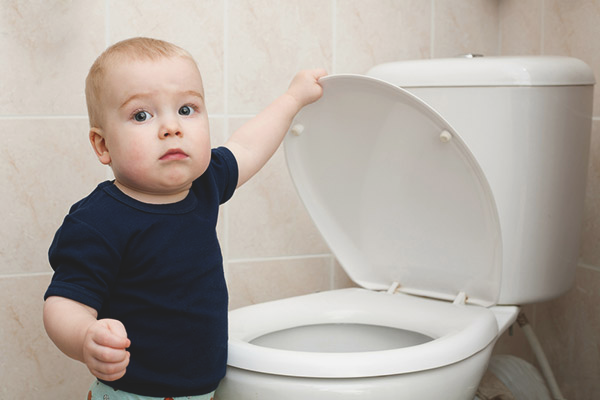
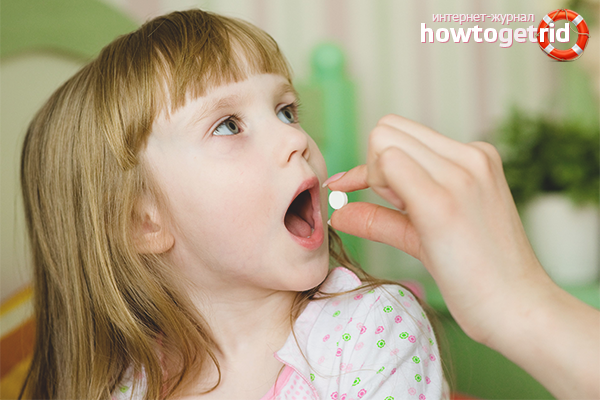

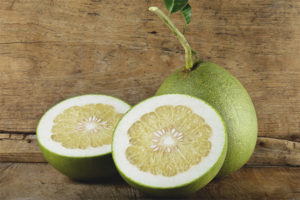
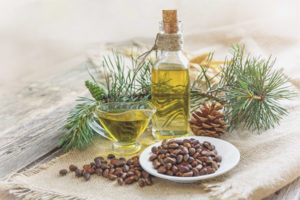
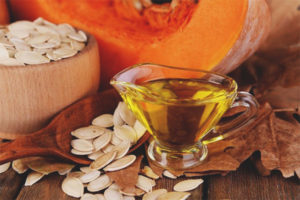
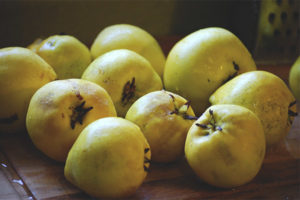
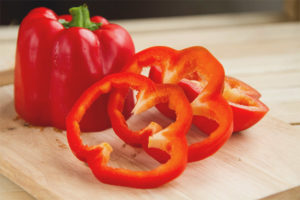
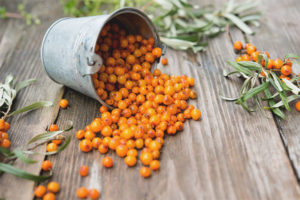
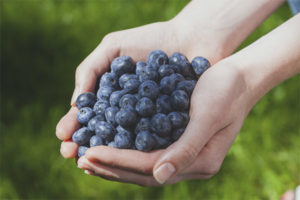
To send